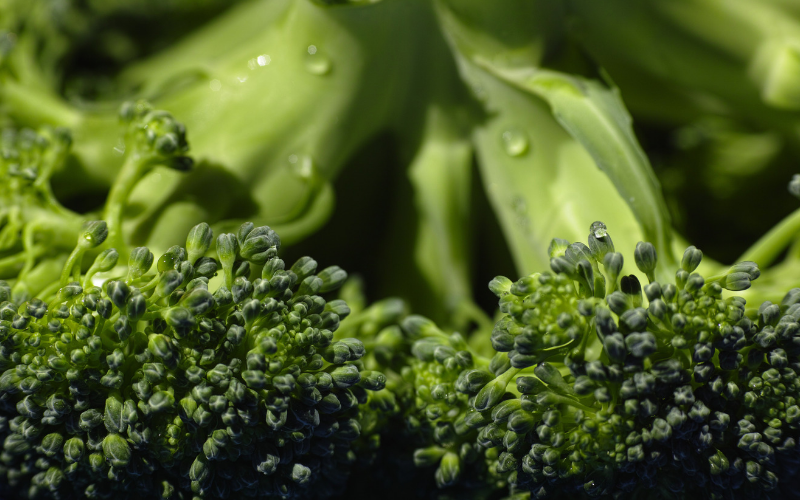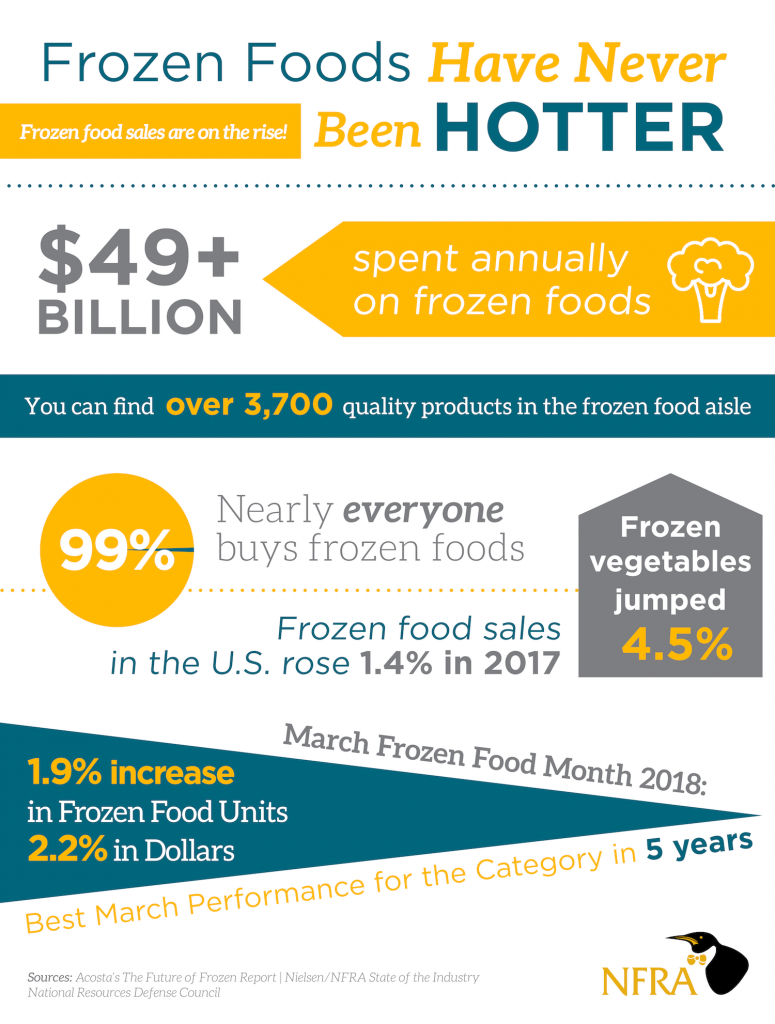Despite the much-vaunted farm-to-table movement among the foodie crowd, frozen foods are gaining in popularity with home cooks.
This comes as frozen food manufacturers branch out into different cuisines and have improved flash-freezing technology, and as food bloggers (especially those appealing to millennials) have added recipes geared to frozen foods on their websites. Even marthastewart.com—hardly a fly-by night operation— features a how-to for roasting frozen broccoli.

Frozen food dollar sales in the U.S. rose 1.4 percent in the last year, with frozen vegetables jumping 4.5 percent over the previous year, according to research firm Nielsen. And this year the category saw its best March performance in five years, says Skip Shaw, president of The National Frozen & Refrigerated Foods Association. Shaw says the group has targeted marketing campaigns focused on changing the stigma about frozen foods. And those campaigns are coming out swinging.
“We go where the consumer is talking about food and communicate about the benefits of frozen food,” says Shaw. “We utilize extensive social media campaigns, influencer marketing, media outreach and strategic partnerships and collaborative industry efforts to tell the frozen story to target audiences.”
 The move comes as consumers’ dining habits and traditions are changing. “There are many new frozen food brands and product lines now catering to a wider variety of cultures and dietary requirements,” Shaw says. “Whether someone is looking for vegan, ethnic, gluten-free, organic or antibiotic-free meat, the frozen food aisle has it all and more.” The target audience? “The messaging is resonating for sure, particularly with millennials.”
The move comes as consumers’ dining habits and traditions are changing. “There are many new frozen food brands and product lines now catering to a wider variety of cultures and dietary requirements,” Shaw says. “Whether someone is looking for vegan, ethnic, gluten-free, organic or antibiotic-free meat, the frozen food aisle has it all and more.” The target audience? “The messaging is resonating for sure, particularly with millennials.”
Any retailer looking over a supermarket’s frozen aisle will see that frozen is not about corn anymore. The craze for riced cauliflower is more than satisfied in the frozen aisle, and while retailers report that the sales of spiralizers in stores are strong, so are sales of spiralized frozen vegetables.
“Consumers today are looking for simpler, nutrient-rich, flavorful and less engineered foods. And they are concerned about food waste,” Shaw says. “Frozen food is real food, just frozen.”



